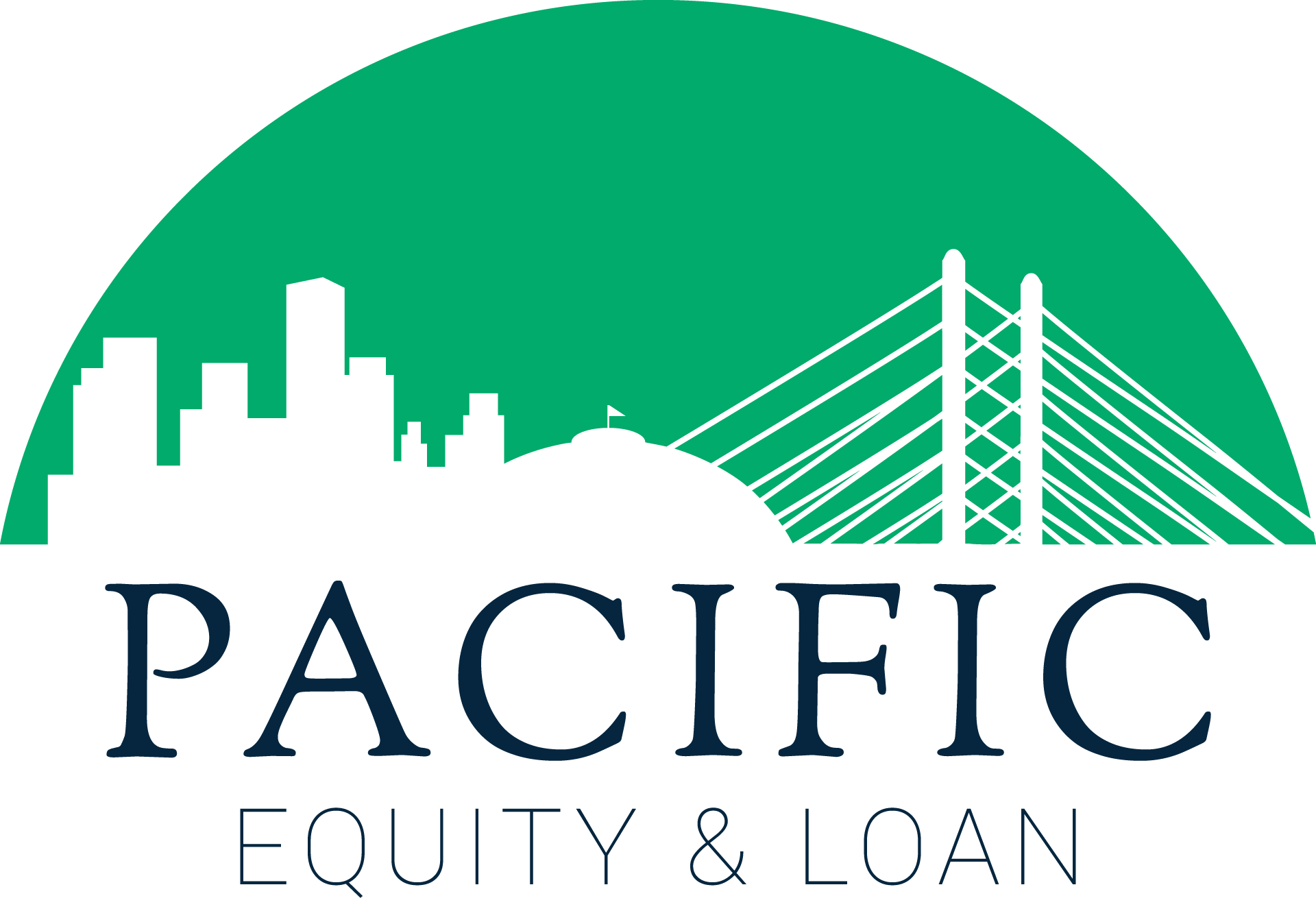Everyone knows that real estate prices have an incredible ability to rise and fall in cycles. If you are a real estate investor, you might ask yourself, “How can I predict or prepare for the next real estate correction?” The real estate market has many unique factors affecting it. There are entire careers built on studying real estate market trends. However, these theories may seem difficult to understand or apply to beginners and intermediate investors.
Preparing for a real estate market correction should be in every investor’s arsenal. No one knows when a real estate correction will happen, but we all know it will happen at some point in the future. As such, we have outlined a few tips you can take today to prepare for it.

When Does a Housing Market Correction Happen?
A housing market correction occurs when home prices take a sudden, significant fall. Often, a housing bubble precedes a real estate market correction. A housing bubble is set off when there is a sudden increase in demand for residential properties despite a small amount of supply. Real estate prices rise due to the imbalance between supply and demand, typically at an alarmingly rapid rate.
The demand for housing will increase once speculators enter the market, further escalating the bubble. The new demand and lack of supply will increase home prices. Although prices have increased, buyers are still eager to purchase a home. Real estate companies will also profit because inventory cannot keep up with the rising demand for building new homes. Real estate investors will also attempt to benefit by acquiring fixer-upper flips.
Homebuyers typically pay very high prices for their properties during a real estate bubble. As a result, they will either need to take out additional loans to pay for their purchase or use a down payment from their retirement and savings accounts. People may find it challenging to make their mortgage payments when times suddenly get tough, which frequently leads to foreclosures.
Housing Bubble: 3 Warning Signs
What are the warning signs of an impending housing market collapse? Here are some red flags to watch out for:
Skyrocketing Housing Costs: The rapid increase in home prices is one of the most apparent signs of a housing bubble. You should be especially concerned if home prices rise more quickly than wages. This implies that the average person won’t be able to afford a mortgage. Borrowers run the risk of being saddled with debt they cannot repay.
Rising Interest Rates: A consistent trend of increasing interest rates is another key indicator of a housing bubble. The cost of income property is lower when interest rates are low, so the demand for housing typically rises. However, borrowing becomes more expensive as interest rates increase.
Rising interest rates will also affect investors who haven’t yet entered the real estate market. Homes will become more expensive as the rates increase. This will reduce housing demand, leading to a glut of real estate.
Riskier Mortgages: Lower credit standards and an influx of high-risk loans are signs that a housing market crash is about to occur. Because of lax mortgage requirements, lenders frequently offer loans to buyers who cannot actually afford the properties.

What Steps Can Investors Take to Prepare for a Possible Market Correction?
Build an Emergency Fund
To be ready for unforeseen circumstances, emergency funds must be built. Save enough money for emergencies to last at least three to six months. A larger emergency fund may be required depending on your lifestyle, cost of living, and the number of people who rely on you.
When the going gets tough, emergency funds can come in handy, primarily if you invest in rentals. You might also need it if you experience a personal emergency, like a sickness or job loss.
Be Proactive in Planning for Worst-Case Scenarios
Even though it may seem gloomy, planning for the worst-case scenario for your real estate investments can help you avoid making unwise decisions.
When you’re planning for your real estate investments, it’s essential to make sure that you take into account all possible outcomes and scenarios. You never know when something unforeseen might occur that could change your plans. If you plan for this possibility, you’ll be able to make better-informed decisions and avoid making bad choices.
Stick to Your Business Plan and Avoid the Fear of Missing Out
Inexperienced investors make three fatal errors when a recession hits: they panic, become fixated on daily market trends, and one day decide to sell everything at the worst possible time.
On the other hand, seasoned investors know that economic downturns are a natural part of the business cycle. Be patient, keep your end goal in mind, and don’t stray from your criteria. While cash flow and profits are always crucial, long-term real estate investing is more about quality, value, perseverance, diversification, and discipline.
Make it a habit to regularly review your long-term objectives and tactical plans to keep your overall business strategy in mind. If you haven’t already, now is the ideal time to draft this document for yourself.
Stay Within Your Budget
Even though some investments might be alluring, it’s essential to understand and always stick to your financial capacity. You can check with financing institutions to accomplish this.
Only invest in real estate that you can afford. Your property risks losing value if there is a real estate crash. You won’t be able to repay your loan and will have to sell your property if you add the financial difficulties that a market crash can bring to the mix. Your property’s value will be at its lowest during a crisis.
Pay Off Debts
If you see bad weather coming for the markets and you have significant debts, you might be better off selling some or all of your holdings and paying off the debts. This is especially wise if you have numerous high-interest debts, such as credit card balances or other consumer loans. While the bear market rages, at least you’ll have a comparatively stable balance sheet.
It can also be a good idea to pay off your mortgage or a substantial portion of it. It’s never a bad idea to keep your monthly deficits to a minimum.
Invest in the Right Kind of Property
In the event of a housing market crash, real estate investors who choose the right investment property are less likely to be impacted. You won’t be as affected by a crash if you invest in the right place where housing demand is steady despite an economic downturn. You will, however, be among the first to experience the adverse effects when the bubble bursts if you decide to invest in areas where demand is likely to become scarce.
It is crucial that you carefully research your investment project for this reason. Ask for a professional in this field if at all possible. Stay on your known path, do not try or drift from the business plan and what you are comfortable with.
Diversify Your Sources of Income
Making sure you don’t put all your eggs in one basket is an excellent way to safeguard yourself from a possible housing market crash. If all of your investments are in real estate, you run the risk of losing everything if the housing market collapses.
It’s important to diversify your investments across various investment vehicles, such as stocks, bonds, real estate, cryptocurrencies, and commodities, to reduce your risk.
If you’re unsure what to do with your money or where to invest it, it’s imperative to get professional advice to diversify your assets effectively.
Bottom Line
There will undoubtedly be more risk if the economy cycles downward, but there will also be plenty of potential rewards. Warren Buffet once said, “Risk comes from not knowing what you’re doing.”
Even though experts don’t anticipate a housing market crash anytime soon, investors still need to be ready. After all, there are indications of a potential new economic downturn. The real estate market will occasionally fluctuate because it is constantly evolving. Preparing is the best way to shield investors from a recession or other unanticipated events.
At Pacific Equity & Loan, we are here to help you find the right property for your investment goals and get the financing you need. We offer a variety of loan programs that are fair and flexible, so you can rest assured knowing that you will have all the tools you need to achieve your investment goals. Investing in a property is a big decision, but we’re here to help you make the right one. Talk with us today!
Citation
Staff. “6 Tips on How to Protect Yourself from a Real Estate Market Crash.” Great Performers Academy, https://greatperformersacademy.com/wealth/6-tips-on-how-to-protect-yourself-from-a-real-estate-market-crash.
PRETERIT, Xavier. “Real Estate Investors Can Prepare for a Market Crash Using These 5 Tips.” Entrepreneur, Entrepreneur, 13 July 2022, https://www.entrepreneur.com/article/429703.
Mburugu, Charles. “What Are the Signs of a Housing Bubble?” Investment Property Tips | Mashvisor Real Estate Blog, 30 Dec. 2020, https://www.mashvisor.com/blog/housing-bubble-signs/.
Rodriguez, Amanda. “US Housing Market Crash 2022: What to Do as an Investor If It Happens.” Investment Property Tips | Mashvisor Real Estate Blog, 5 Apr. 2022, https://www.mashvisor.com/blog/housing-market-crash-2022/.







